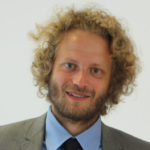Freedom of Religion or Belief and Security – Some Reflections

Jeroen Temperman is Professor of International Law and Religion at Erasmus University Rotterdam
Together, recent domestic “laws on extremism,” counter-terrorism efforts, seemingly perpetual “states of emergency,” and miscellaneous “national security” measures send an unequivocally powerful message: Rights and freedoms are all well and good, but if unchecked, such liberties may undermine another important public good—security. As a result, freedom is increasingly and categorically pitched against security; security is also pitched against freedom. Such is the securitization zeitgeist. Security demands sacrifices—sacrifices in the area of what used to be fundamental freedoms we took for granted. (more…)


